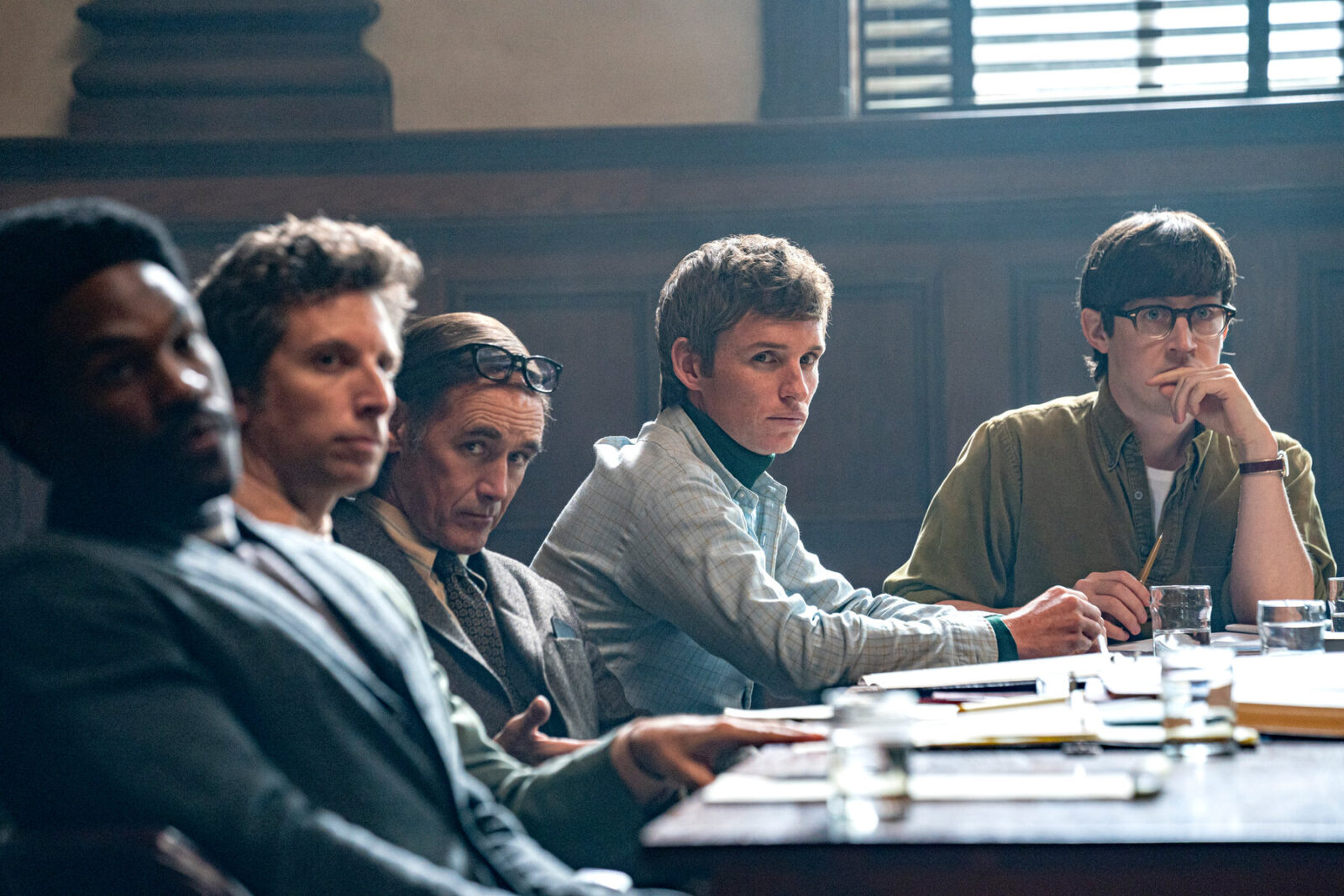Right from the beginning, The Trial of the Chicago 7 lets you know it’s a Aaron Sorkin piece. Intercut with archival footage, the lead characters are introduced one by one. Each scene reveals the basic traits of each figure. Namely, their interests, their politics and their personalities. All the while, snappy dialogue and one-liners are thrown out left and right.
It’s an electric sequence with zippy energy and charm to spare. If anybody has seen The West Wing or Molly’s Game, they have an idea about what makes the presentation of this historical drama so unique. Clever, fast-paced writing with an incredibly talented ensemble cast. But like almost all Sorkin works, it has many distinct problems that hold the piece back. And despite a game cast, the story’s jumbled narrative makes it hard to really invest and appreciate this timely piece.
Who is the Lead?
The biggest headline for the movie is its ensemble cast. The stars are of course the Chicago 7, eight anti-Vietnam activists charged by the federal government for conspiracy and incite to riot. This group in particular is what makes the film worth a watch. The chemistry is solid and their relationship grows in a way that’s believable and resonant. Jeremy Strong and Yahya Abdul-Mateen II in particular shine in their roles, with intense charisma and flair.
However, Sorkin fails to really balance this ensemble. Plots and character arcs often end just as fast as they are introduced and there’s no true perspective to focus on. The film seems to have Joseph Gordon-Levitt as the wide-eyed lawyer prosecuting against the Chicago 7 as the main perspective. And it seems like a smart angle to introduce all these crazy characters with Levitt’s fresh set of eyes. But the film jumps around from idea to idea, never really allowing a coherent story that allows for all these moments to breathe and develop.

It’s even more frustrating as Sorkin is passionate about the subject matter and fleshing out these protagonists. And there are certainly some memorable sequences that allow each actor to shine. But as the film ends, it never quite feels as impactful as it should.
A Standard Direction
Sorkin’s talents as a writer are apparent. His tropes do get in the way of a cohesive feature. But it’s clear he has a love for writing and knows how to write in a unique and entertaining fashion. However, Chicago 7 does make me wish Sorkin had a better understanding of visual language.
For the most part, his direction works well enough. The editing in particular rocks, with clever cuts that give the film solid energy and pace. Yet for the visuals, it’s underwhelming to look at. Not bad, but it’s rather bland to look at, and fails to really deliver anything cinematic and engaging visually.
Legal dramas can use camera angles and lighting in creative ways, but Sorkin just lets them play out straight. And while not unwatchable, there really could have been more to really elevate the themes and story. It’s frustrating, as it feels like the film is more standard, failing to capture what makes this story so engaging and important.
To Sum Up…
The Trial of the Chicago 7 is far from a bad movie. The acting is sublime, the writing is entertaining, and its themes of justice and corruption pack an emotional wallop. But similar to Sorkin’s last film Molly’s Game, it doesn’t leave the impact it truly deserves. The narrative is jumbled, arcs don’t feel as strong as they should, and its visual direction doesn’t feel as inventive or dynamic like everything else.
There’s certainly stuff to like here, and it’s certain many will connect to it. But for a story as dramatic and important as this, it needed some solid touch-ups to truly make it stand out.
Read my other Netflix reviews here
